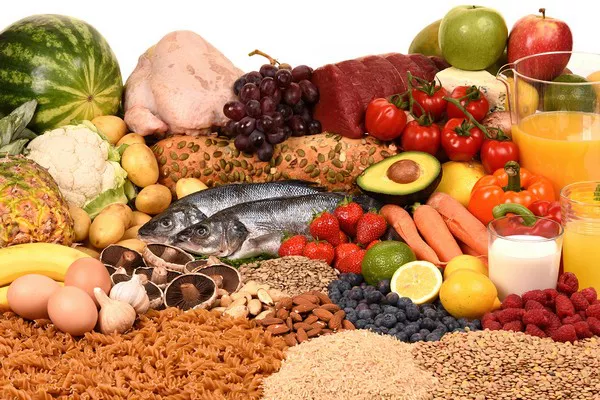Protein consumption plays a crucial role in post-exercise recovery and muscle adaptation. After a workout, the body undergoes a series of physiological changes that require adequate protein to support tissue repair and growth. In this article, we will delve into the question of how much protein one should consume after exercise to maximize recovery, promote muscle protein synthesis, and enhance athletic performance. By understanding the importance of post-exercise protein consumption and its optimal quantity, you can make informed choices to fuel your body effectively.
The Role of Protein in Post-Exercise Recovery
Exercise, especially resistance training and high-intensity activities, places stress on the muscles, leading to microdamage and depletion of energy stores. Post-exercise recovery is a critical phase during which the body repairs damaged tissues, replenishes energy stores, and adapts to the stress imposed by the workout. Protein consumption during this period is essential for several reasons:
- Muscle Protein Synthesis: Protein provides the necessary amino acids for muscle protein synthesis, which is the process of building new proteins in the muscle fibers. This synthesis contributes to muscle repair and growth, leading to increased muscle mass and strength over time.
- Muscle Glycogen Replenishment: Intense exercise depletes muscle glycogen stores, the primary source of energy during physical activity. Consuming carbohydrates together with protein after exercise can enhance glycogen replenishment, ensuring that muscles have sufficient energy for subsequent workouts.
- Reduced Muscle Protein Breakdown: Intense exercise triggers muscle protein breakdown, a natural process that occurs during exercise to provide amino acids for energy production. Consuming protein after exercise can help counteract excessive muscle protein breakdown, preserving muscle mass and promoting recovery.
Protein Timing and the Anabolic Window
The timing of protein consumption after exercise has been a topic of debate among athletes and researchers alike. The concept of the “anabolic window” suggests that there is a limited period immediately after exercise during which protein ingestion is crucial for maximizing muscle protein synthesis and recovery. However, recent research suggests that the anabolic window may be broader than previously believed, extending up to several hours following exercise.
While the precise duration of the anabolic window remains uncertain, it is generally recommended to consume protein within the first few hours after exercise to optimize recovery. This timeframe allows for the delivery of amino acids to the muscles when they are most receptive to protein synthesis.
Recommended Post-Exercise Protein Intake
Determining the ideal amount of protein to consume after exercise depends on several factors, including the type, duration, and intensity of the workout, an individual’s body weight and composition, and their training goals. Here are some general guidelines for post-exercise protein intake:
- Protein Quantity: Consuming 20 to 40 grams of high-quality protein after exercise has been shown to maximize muscle protein synthesis. This range provides an adequate supply of essential amino acids necessary for muscle repair and growth. However, individual protein requirements may vary based on factors such as body weight, training status, and exercise intensity.
- Protein Quality: The quality of protein consumed after exercise is crucial for optimizing muscle protein synthesis. High-quality protein sources, such as whey protein, have a favorable amino acid profile and are rapidly absorbed, making them an excellent choice for post-exercise nutrition. Other sources of high-quality protein include lean meats, poultry, fish, eggs, and dairy products.
- Leucine Content: Leucine, an essential amino acid, plays a vital role in stimulating muscle protein synthesis. Including protein sources rich in leucine, such as whey protein, in your post-exercise meal or snack can enhance muscle recovery and adaptation. Aim for a leucine content of around 2 to 3 grams per serving of protein.
- Carbohydrate Co-ingestion: While protein is essential for post-exercise recovery, combining it with carbohydrates can further enhance glycogen replenishment and muscle protein synthesis. Consuming a ratio of 3:1 or 4:1 carbohydrates to protein has been shown to optimize glycogen resynthesis and promote muscle recovery. This can be achieved by including carbohydrate-rich foods, such as fruits, whole grains, or sports drinks, alongside protein in your post-workout meal or snack.
- Individual Variability: It is important to recognize that individual protein needs can vary significantly. Factors such as body weight, muscle mass, training status, and exercise intensity all influence an individual’s protein requirements. Consulting with a registered dietitian or sports nutritionist can provide personalized recommendations based on your specific needs and goals.
Protein Sources for Post-Exercise Recovery
When it comes to post-exercise nutrition, the choice of protein sources can significantly impact recovery and performance. Here are some protein-rich foods commonly consumed after exercise:
- Whey Protein: Whey protein is a fast-digesting, high-quality protein derived from milk. It contains all essential amino acids, including a high concentrationof leucine, making it an excellent choice for post-exercise recovery. Whey protein supplements are convenient and widely available, providing a quick and effective way to meet your protein needs.
- Lean Meats: Lean meats, such as chicken, turkey, and beef, are rich sources of high-quality protein. They also provide essential nutrients like iron and B vitamins, which are important for overall health and recovery. Opt for lean cuts of meat and remove visible fat to minimize saturated fat intake.
- Fish: Fish, such as salmon, tuna, and trout, are not only excellent sources of protein but also rich in omega-3 fatty acids. Omega-3 fatty acids possess anti-inflammatory properties and can support muscle recovery and reduce exercise-induced muscle soreness. Including fatty fish in your post-exercise meal plan can provide a well-rounded nutritional boost.
- Eggs: Eggs are a nutrient-dense food that contains high-quality protein, essential amino acids, and various vitamins and minerals. They are versatile and can be easily incorporated into post-workout meals or snacks. Consider options like omelets, scrambled eggs, or hard-boiled eggs for a protein-packed post-exercise fuel.
- Plant-Based Proteins: For individuals following a vegetarian or vegan diet, plant-based protein sources can be an excellent choice for post-exercise recovery. Foods like tofu, tempeh, lentils, chickpeas, and quinoa are rich in protein and can provide the necessary amino acids for muscle repair and growth.
Conclusion
Protein consumption after exercise is crucial for optimizing recovery and promoting muscle adaptation. Adequate protein intake supports muscle protein synthesis, replenishment of energy stores, and reduction of muscle protein breakdown. While the precise timing and quantity of protein intake may vary based on individual factors, consuming 20 to 40 grams of high-quality protein within a few hours after exercise is a general guideline for most individuals.
[inline_related_posts title=”You Might Be Interested In” title_align=”left” style=”list” number=”6″ align=”none” ids=”3063,3061,3059″ by=”categories” orderby=”rand” order=”DESC” hide_thumb=”no” thumb_right=”no” views=”no” date=”yes” grid_columns=”2″ post_type=”” tax=””]


































